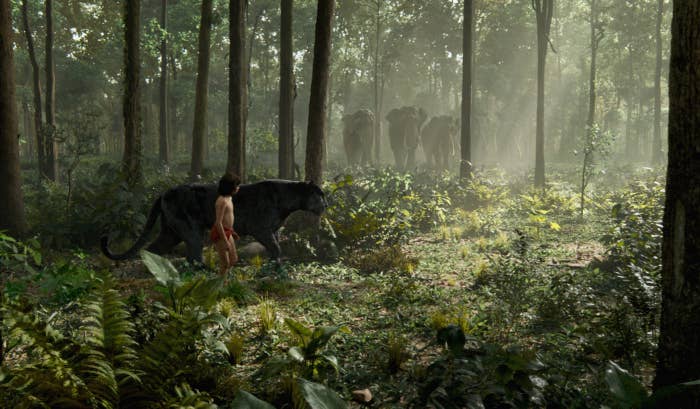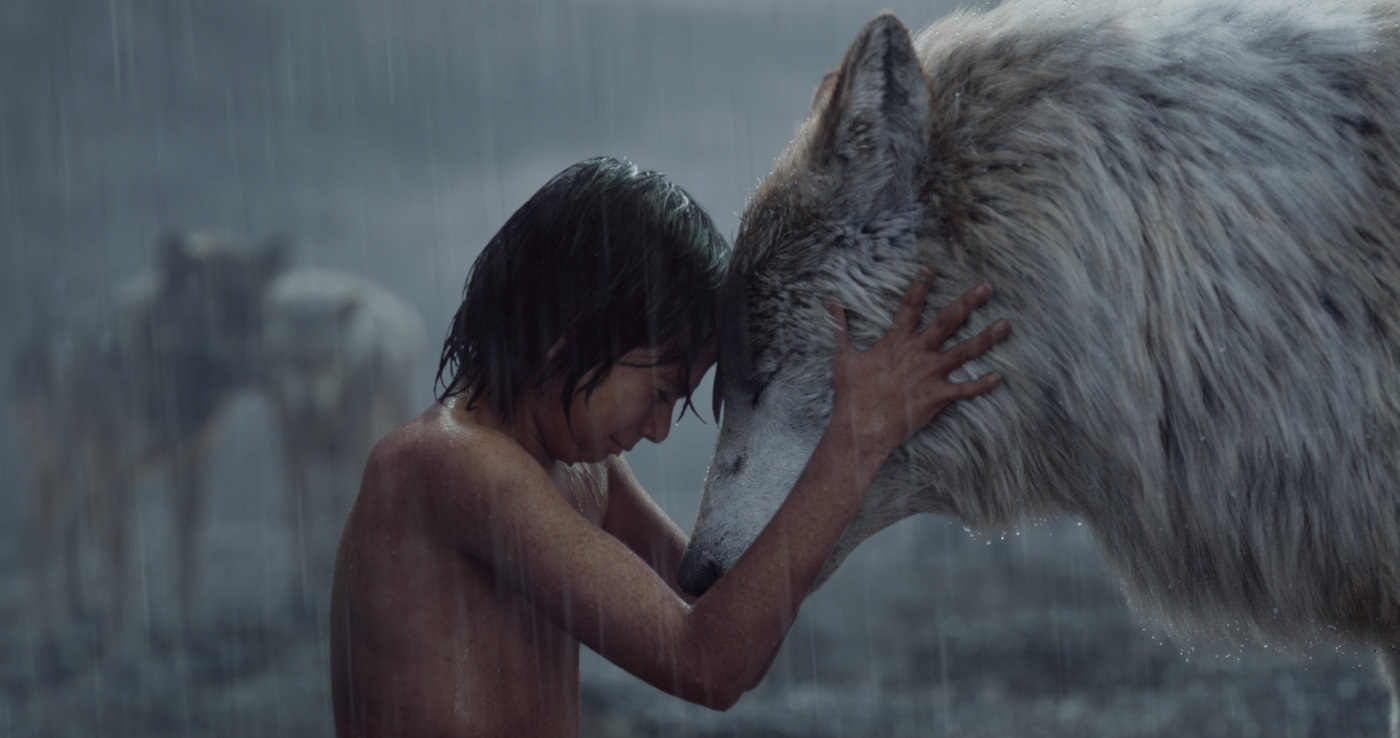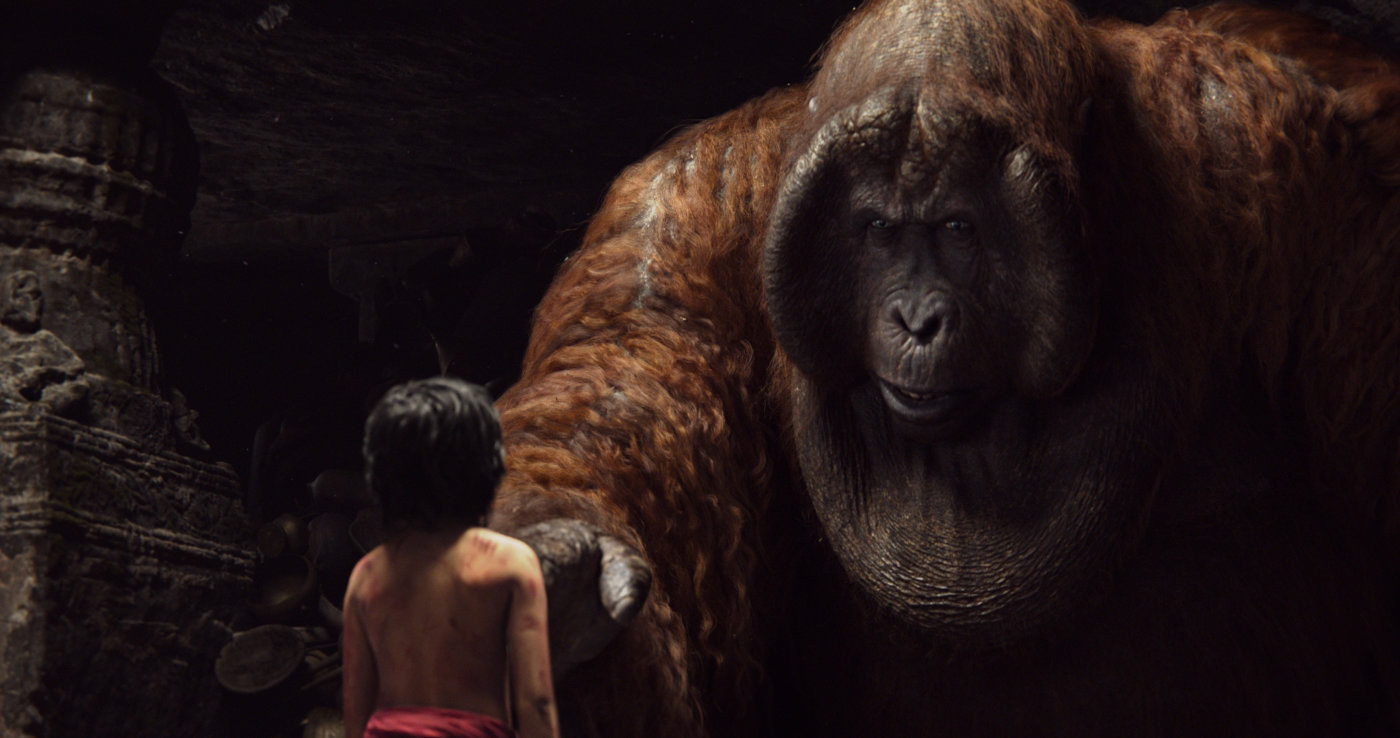
Visual effects get used for everything from the creation of identical troll-like baddies to the adding of pubic hair to keeping actors forever young and digitally slenderized these days. But the new Jungle Book proves movie technology still has the power to create a sense of wonder.
When the wolves and tigers and bears speak in the movie, their lips (snouts, whatever) move. It should look creepy or silly, like Mister Ed, those beastly mouths flapping and contorting into an approximation of human speech. But instead, it's weirdly magical, like the talking animals of countless animated classics have finally been hauled into the real world without losing their capacity to communicate across species.
Which is exactly what Disney is aiming for in revamping its 1967 animated musical for a 2016 audience that's looking for nostalgia and something new. Director Jon Favreau, working from a screenplay Justin Marks adapted from the works of Rudyard Kipling, has called forth a jungle out of a blue-screened Los Angeles soundstage and a carefully chosen voice cast. The lush vividness of it and its inhabitants is an impressive technical achievement. But the best recommendation for what Favreau and presumably many behind-the-scenes artists and technicians have pulled off is how quickly you stop thinking of the overclocked render farms on which it all came together and accept the world in which it takes places as humid, verdant fact.

The lone human character for most of the movie is Mowgli (10-year-old Neel Sethi), the orphan raised by wolves and by Bagheera the panther (Ben Kingsley) in the wild. But he's never alone. He's been, not always seamlessly, integrated into a thriving ecosystem of predator and prey with its own rules and rulers.
And the members of it look fantastic, down to the disarray of fur on easygoing Baloo the bear (voiced by Bill Murray) as he surveys his honey trove, to the not-quite-coordination of the wolf cubs heeding the call of their parents Akela (Giancarlo Esposito) and Raksha (Lupita Nyong'o), to the sinewy slink of menacing tiger Shere Khan (Idris Elba) up to the watering hole, to the slither of Kaa the snake's (Scarlett Johansson) coils through the shadows.
There's not a trace of uncanny valley in The Jungle Book's visuals, that eeriness when an artificial creation is so close to real life that you can only see the flaws, maybe because digital animals are easier to give warmth to than computer-created people. But, as if to make up for the fact, the movie figures out a whole other sort of awkward in-between space to occupy by getting close enough to an adventure movie of a more grown-up variety to make its children's fable remnants all the more strange.

The Jungle Book is the latest in a line of live-action remakes of Disney stalwarts, an enterprise that's become a big part of the Mouse House's movie game, including both revisionist retellings like Maleficent and straightforward ones like Cinderella. The Jungle Book falls somewhere in between the two, never really reworking the take on the story Disney made as its own, but not parroting it back either. It dutifully nods to its animated predecessor with two song-and-dance sequences (Baloo's "The Bare Necessities" and King Louie's "I Wan'na Be Like You") but no more than that, making it a kind of half-musical. The tunes feel like a familiar but obtrusive gesture toward the past instead of falling in line with the rest of the tone. Favreau's take on the Kipling tales includes mentions of death — directly, with a character getting killed, but also indirectly, with an acknowledgment that offscreen, some of these delightful characters eat other ones.
Well, all those adorable little wolves are going to grow up to nosh on something.
There's nothing wrong with a darker Jungle Book that acknowledges nature isn't all about getting along, and when it's really humming along, Favreau's film feels like the kind of movie that both enchants and freaks out a kid in equal measure, a future kindertrauma classic of the best kind. But the overall direction The Jungle Book takes doesn't jell with the occasional aspects of the narrative that treat Mowgli's upbringing as a kind of Peter Pan escape from the tedium of human society. Humanity is the bogeyman the animals all fear in The Jungle Book — humanity and the fire (the "red flower") we wield — and it's a desire to join humanity that infects and undoes King Louie (voiced by Christopher Walken), the most jarringly interpreted character, a 10-foot Gigantopithecus looming out of the darkness, the ape equivalent of Aragog. The problem is not how frightening he is when he chases Mowgli through the crumbling palace he and his monkey minions have taken over; it's that before then, the movie attempts to present him as comic relief, speaking in the distinctive Walken rhythms and segueing him into a musical number.

Photorealism all but demands a, well, grittier take on source material like this. The Jungle Book's characters look like real animals, and act more like them as well, while Mowgli is believably childlike — petulant, still learning, and inclined, in a wonderful scene with the elephants, to acts of unforced grace. But there's an unavoidable bit of realism that the movie pulls back on, and that's the idea that a human boy can never just be one of the animals, no matter how hard he tries. There's a scene toward the movie's climax in which all of the creatures of the jungle suddenly see Mowgli, not as an adoptee, but as an interloper — not one of them at all, but the man he's always been. It's a surprisingly upsetting moment, the most provocative in the movie, introducing the idea that Mowgli can't help but disrupt this delicate balance with his very nature.
In the animated version, this issue is resolved with a bittersweet ending that sends Mowgli back to his own kind. But this new Jungle Book opts for something else, making the already-in-the-works sequel that much more easy to segue into, but chipping away at its own otherwise mostly captivating vision in the process. When you've realized a world so gorgeously, a reluctance to let it go is understandable, but The Jungle Book suggests its main character's desire to stay is more important than the animals it brings to such incredible life.
